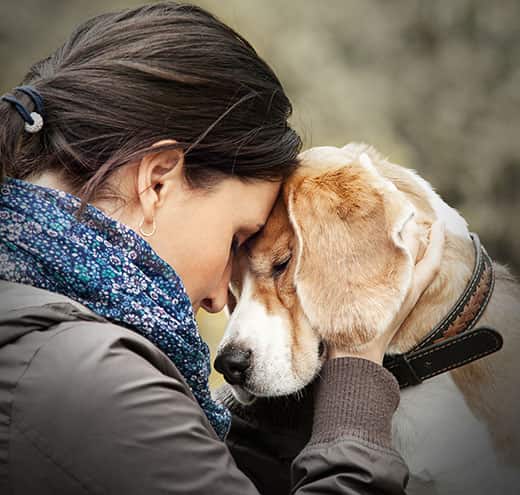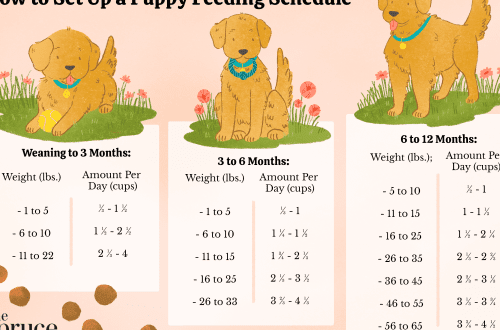
Do dogs understand humans?
For thousands of years, dogs have been man’s closest friends. They live and work with us and even become members of our families, but do they understand our words and emotions? For a long time, despite dog breeders’ claims to the contrary, scientists have assumed that when a dog looks like it understands its owner, it is only showing a learned pattern of behavior, and its owner is simply attributing human qualities to it. But recent research has again raised the question of whether dogs understand humans and human speech.
Contents
Research on cognitive processes in dogs
Despite the fact that mankind is aware of the long and close relationship between man and dog, research on the processes of thinking and information processing in dogs is a fairly new phenomenon. In his book How Dogs Love Us, neuroscientist Gregory Burns of Emory University names Charles Darwin as a pioneer in the field in the 1800s. Darwin wrote extensively about dogs and how they express emotions in body language in his third work, The Expression of the Emotions in Man and Animals. Phys.org highlights the first major modern study, conducted in 1990 by Duke University Associate Professor of Evolutionary Anthropology Brian Hare, then a graduate student at Emory University. However, this area of research gained real popularity only in the 2000s. Nowadays, new research on how dogs understand human language, gestures, and emotions is being done fairly regularly. This field has become so popular that Duke University even opened a special department called the Canine Cognition Center under the direction of Dr. Hare.
Do dogs understand people?
So, what are the results of all the studies carried out? Do dogs understand us? It appears that dog owners who claimed that dogs understood them were right, at least in part.
Understanding speech
 In 2004, the journal Science published the results of a study involving a border collie named Rico. This dog conquered the scientific world, demonstrating an amazing ability to quickly grasp new words. Rapid grasping is the ability to form a rudimentary idea of the meaning of a word after it is first heard, which is characteristic of young children at the age when they begin to form a vocabulary. Rico learned the names of over 200 different items, learning to recognize them by name and find them within four weeks of first meeting.
In 2004, the journal Science published the results of a study involving a border collie named Rico. This dog conquered the scientific world, demonstrating an amazing ability to quickly grasp new words. Rapid grasping is the ability to form a rudimentary idea of the meaning of a word after it is first heard, which is characteristic of young children at the age when they begin to form a vocabulary. Rico learned the names of over 200 different items, learning to recognize them by name and find them within four weeks of first meeting.
A more recent study by the University of Sussex in England showed that dogs not only understand the emotional cues in our speech, but are also able to distinguish words that make sense from nonsensical ones. The results of a 2014 study published in the journal Current Biology confirm that dogs, like humans, use different parts of the brain to process these aspects of speech. More precisely, emotional signals are processed by the right hemisphere of the brain, and the meanings of words are processed by the left.
Understanding body language
A 2012 study by PLOS ONE magazine confirmed that dogs understand human social cues to the point where they can influence them. During the study, the pets were offered two portions of food of different sizes. Most dogs chose the larger portion on their own. But when people intervened, the situation changed. It became apparent that a positive human response to a smaller portion can convince animals that it is desirable to choose it.
In another 2012 study published in the journal Current Biology, Hungarian researchers studied the ability of dogs to interpret subtle forms of communication. During the study, the animals were shown two different versions of the same video. In the first version, the woman looks at the dog and says the words: “Hi, dog!” in an affectionate tone before looking away. The second version differs in that the woman looks down all the time and speaks in a hushed voice. When watching the first version of the video, the dogs looked at the woman and followed her gaze. Based on this response, the researchers concluded that dogs have the same cognitive ability as children between the ages of six and twelve months to recognize direct contact with them and information addressed to them.
This was probably not a revelation to Dr. Hare of the Canine Cognition Center at Duke University, who did his own experiments with dogs as a senior at Emory University in the 1990s. According to Phys.org, Dr. Hare’s research has confirmed that dogs are better than our closest cousins, chimpanzees, and even children, at understanding subtle cues such as finger pointing, body position, and eye movements.
Understanding emotions
 Earlier this year, the authors of a study published in the journal Biology Letters of the Royal Society of London (British Royal Society), reported that animals are able to understand the emotions of people. The result of a collaboration between researchers from the University of Lincoln in the United Kingdom and the University of Sao Paulo in Brazil, the study confirms that dogs form abstract mental representations of positive and negative emotional states.
Earlier this year, the authors of a study published in the journal Biology Letters of the Royal Society of London (British Royal Society), reported that animals are able to understand the emotions of people. The result of a collaboration between researchers from the University of Lincoln in the United Kingdom and the University of Sao Paulo in Brazil, the study confirms that dogs form abstract mental representations of positive and negative emotional states.
During the study, dogs were shown images of people and other dogs that looked happy or angry. The display of the images was accompanied by the demonstration of audio clips with happy or angry/aggressive vocalizations. When the emotion expressed by the vocalization matched the emotion depicted in the picture, the pets spent significantly more time studying the facial expression in the picture.
According to one of the researchers, Dr. Ken Guo of the Lincoln University School of Psychology, “Previous research has shown that dogs are able to detect human emotions based on cues such as facial expressions, but this is not the same as recognizing emotions,” according to the site. ScienceDaily.
By combining two different channels of perception, the researchers showed that dogs do indeed have the cognitive ability to recognize and understand people’s emotions.
Why do dogs understand us?
The reason why pets are able to understand us is still a mystery, but most researchers consider this ability the result of evolution and a necessity. Dogs have been closely associated with humans for thousands of years and over time have come to depend on humans more than any other animal species. Perhaps breeding also played a role, for which dogs were selected on the basis of certain apparent cognitive abilities. In any case, it is obvious that individuals who are closely related to and dependent on man, sooner or later develop the ability to understand us and communicate with us.
What does this mean for you and your puppy?
Now that you’re more aware that your pet is able to understand not only words and verbal commands, but also emotional cues, what difference does that make? First of all, it gives you confidence that your puppy is able to learn not only the commands “Sit!”, “Stand!” and “Paw!” Dogs have the amazing ability to memorize hundreds of words, like Rico, mentioned above, and Chaser, the Border Collie, who learned over 1 words. Chaser has an incredible ability to pick up new words quickly and can find a toy by its name. If you ask him to find among the toys known to him an object whose name is unfamiliar to him, he will understand that the new toy must be correlated with a new name unknown to him. This ability proves that our four-legged friends are very smart.
Another question addressed in the study of the cognitive ability of dogs is whether they are able to understand social cues. Have you noticed that when you have a hard day, the dog tries to stay closer to you and caresses more often? In this way, he wants to say: “I understand that you are having a hard day, and I want to help.” If you understand this, it is easier for you to strengthen relationships, because you know how to respond to each other’s emotional state and share joys and sorrows – like a real family.
Do dogs understand us? Undoubtedly. So the next time you talk to your pet and notice that he is listening to you carefully, be sure that this is not what you think. Your dog doesn’t understand every word and doesn’t know its exact meaning, but he knows you better than you think. But more importantly, your pet is able to understand that you love him, so do not think that talking to him about your love is pointless.





